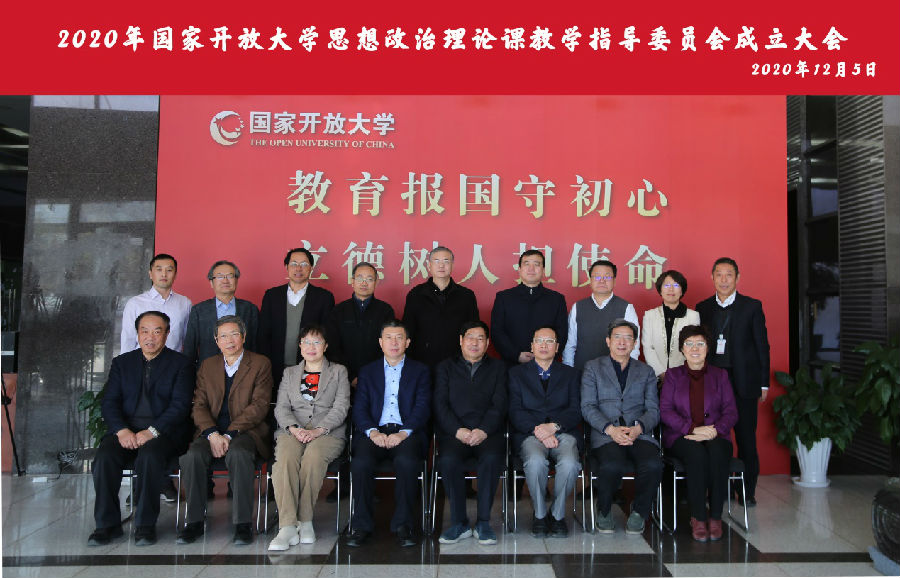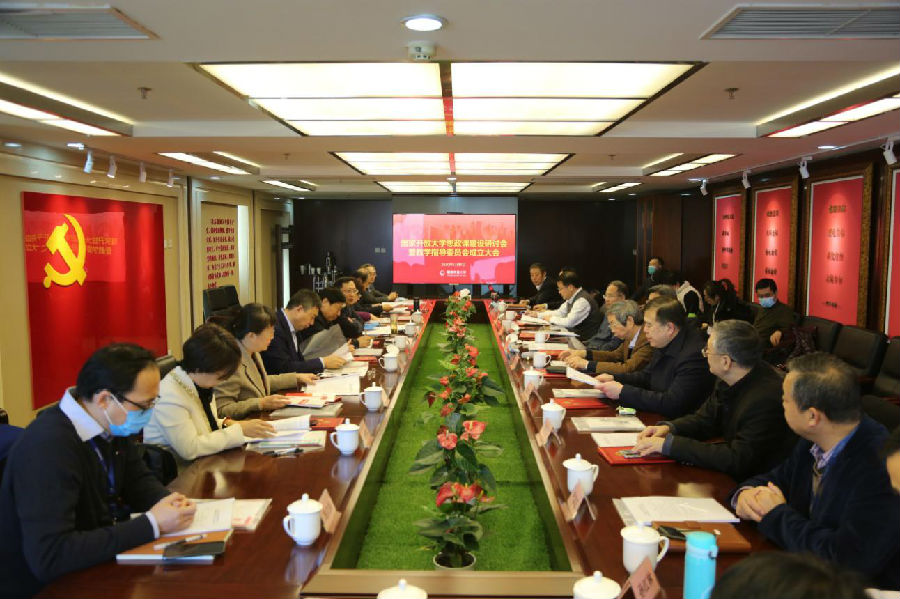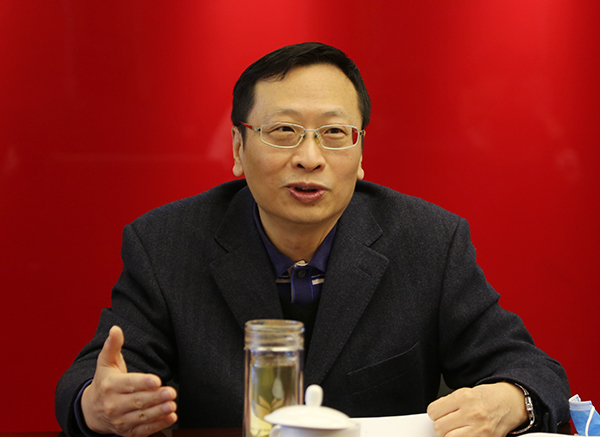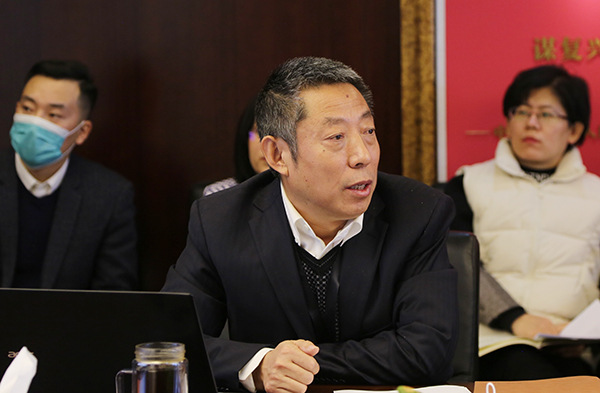 On 5 December 2020, the Open University of China (OUC) held a meeting in Beijing on the construction of courses in ideology and political theory, and the founding of a steering committee for the teaching of ideology and political theory.
On 5 December 2020, the Open University of China (OUC) held a meeting in Beijing on the construction of courses in ideology and political theory, and the founding of a steering committee for the teaching of ideology and political theory.

15 experts in the teaching of ideology and politics from more than 10 institutions, including regular universities, Party schools, and scientific-research institutes, participated, and provided suggestions for course construction at the OUC. Jing Degang, secretary of the Party Committee and president of the OUC; Cao Guoyong, executive deputy secretary of the OUC Party Committee; Liu Chen, deputy secretary of the Party Committee, and president of the OUC School of Marxism; heads of relevant university departments, and all the teachers in the OUC School of Marxism, attended, with Cao Guoyong and Liu Chen presiding.

Jing Degang pointed out in his speech that the OUC features a large number of teaching centres and extensive coverage, and that it is making great efforts to become a major platform of flexible lifelong and online education, as well as foreign cooperation on the basis of a new system. He said that the members of the steering committee had joined the OUC out of their dedication to national development, and expressed the hope that they would contribute their intellects to constructing the OUC’s courses in ideology and politics, and jointly exploring models of large-scale online education in these areas.

Cao Guoyong read out the "Decision on the Establishment of a Steering Committee for the Teaching of Ideology and Political Theory at the OUC". The first such committee in the history of the OUC, it is headed by two directors, Jing Degang and Professor Wang Huaichao of the Party School of the CPC Central Committee; two deputy directors, Li Yan, professor of Northeast Normal University, and Cao Guoyong; and a secretary general, Sun Fuwan, executive vice president of the OUC School of Marxism. 15 experts comprise the committee, and Cao Guoyong pointed out that, as an expert organisation that offers consultation, review, supervision and guidance for the teaching of ideology and politics at the OUC, it will play an important role in the construction of related courses.

Liu Chen spoke on the history and current situation of courses in ideology and politics at the OUC, pointing out that it has always attached great importance to their construction, following national regulations and exploring online integration of guidance, learning, testing and related consolidating processes. In July of this year, the university issued documents that included Opinions of the OUC on Deepening the Reform of Courses in Ideology and Political Theory in the New Era and Plan for the Construction of the OUC School of Marxism. Under the leadership of the university’s Party Committee, construction of the new courses is making steady progress at the OUC.
After discussion, the meeting passed the new committee’s constitution, comprised of 5 chapters and 16 articles, and including provisions on its nature, organisation, responsibilities and operations. It states that the committee will guide investigation of the courses in ideology and politics currently offered by the OUC, research major issues in their construction, and suggest policies. It will guide the construction of related teaching resources and control their quality, covering micro courses, the examination-question bank, and the question bank, and guide the construction of the teaching teams, the design of the teacher-training plans, and the research of the teachers involved.
The participants discussed the constitution and course construction, and reached consensus on the following three issues. First, with its involvement in continuing education and its national reach, the OUC is uniquely situated to contribute to the spread of Marxist education nationwide. Second, education in ideology and political theory should be increasingly prioritised and professionalised as part of the ongoing development of the School of Marxism. Third, the OUC, with its distinct features, differs from ordinary colleges and universities in terms of the instruction in ideology and political theory that it offers, having already gained extensive experience in resource construction and online teaching. The committee stated that it was willing to contribute to the continuing development of this area at the OUC in order to suit it to the online learning of employed adults.
In his closing speech, Jing Degang pointed out that the OUC is in a process of four-fold transformation: from expansion to enhancement, from a focus on qualifications to one on knowledge, from providing degrees to enhancing skills, and from predominately online teaching to integration of online and offline teaching. The suggestions of the committee will guide the construction of courses in ideology and politics, the development of the university, and the operations of open universities as such. He said that the OUC is willing to serve the steering committee and provide support to its field and academic research, academic publications, and participation in course construction at the OUC. He stressed that, with the help of the committee and the joint efforts of all OUC members, the university would popularise Marxism along with ideological and political education conducive to the growth of students, forming its own unique digital School of Marxism.

Written by Sun Fuwan, Xuan Hongqin and Sun Honglin; photos by Zhang Jun, OUC